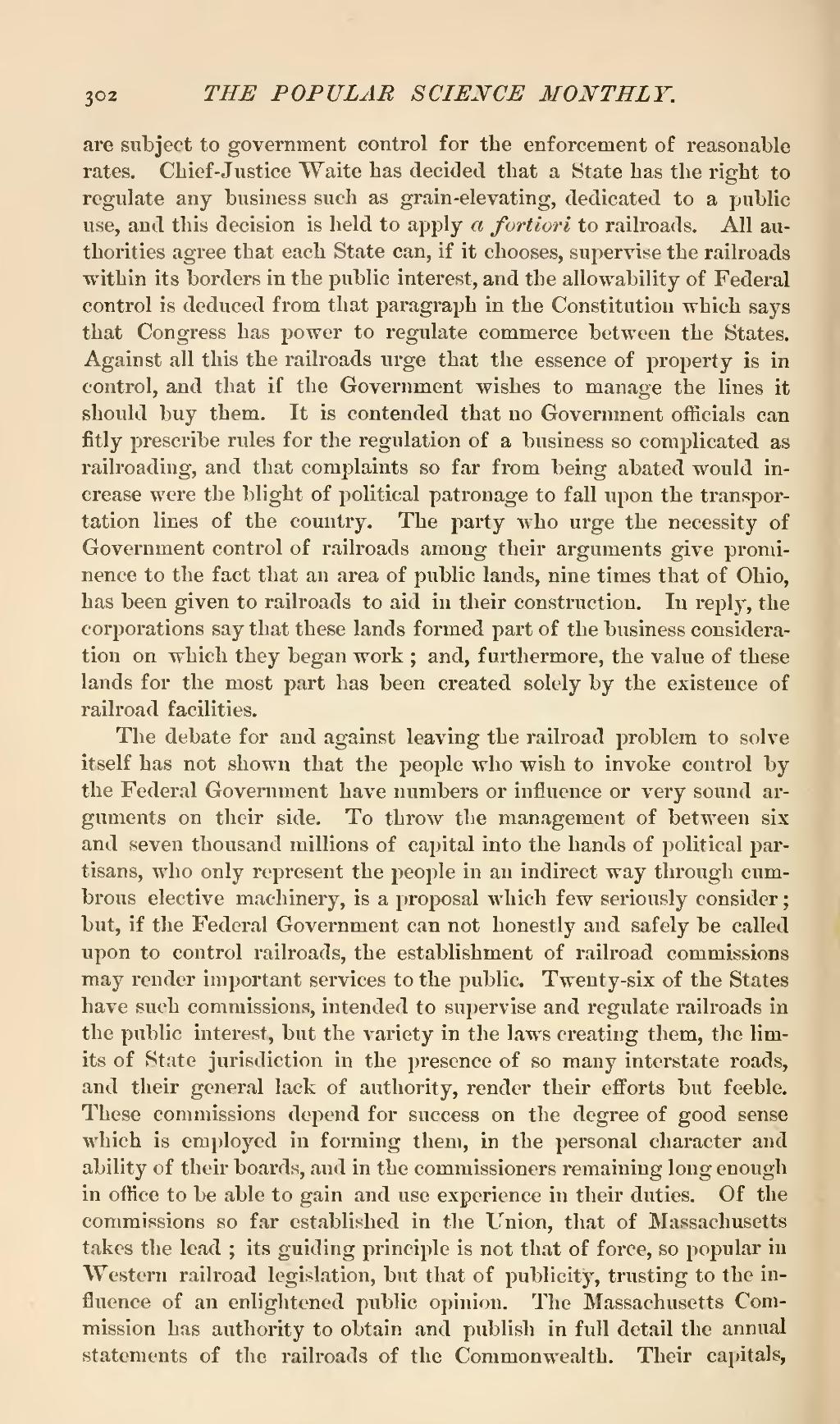are subject to government control for the enforcement of reasonable rates. Chief-Justice Waite has decided that a State has the right to regulate any business such as grain-elevating, dedicated to a public use, and this decision is held to apply a fortiori to railroads. All authorities agree that each State can, if it chooses, supervise the railroads within its borders in the public interest, and the allowability of Federal control is deduced from that paragraph in the Constitution which says that Congress has power to regulate commerce between the States. Against all this the railroads urge that the essence of property is in control, and that if the Government wishes to manage the lines it should buy them. It is contended that no Government officials can fitly prescribe rules for the regulation of a business so complicated as railroading, and that complaints so far from being abated would increase were the blight of political patronage to fall upon the transportation lines of the country. The party who urge the necessity of Government control of railroads among their arguments give prominence to the fact that an area of public lands, nine times that of Ohio, has been given to railroads to aid in their construction. In reply, the corporations say that these lands formed part of the business consideration on which they began work; and, furthermore, the value of these lands for the most part has been created solely by the existence of railroad facilities.
The debate for and against leaving the railroad problem to solve itself has not shown that the people who wish to invoke control by the Federal Government have numbers or influence or very sound arguments on their side. To throw the management of between six and seven thousand millions of capital into the hands of political partisans, who only represent the people in an indirect way through cumbrous elective machinery, is a proposal which few seriously consider; but, if the Federal Government can not honestly and safely be called upon to control railroads, the establishment of railroad commissions may render important services to the public. Twenty-six of the States have such commissions, intended to supervise and regulate railroads in the public interest, but the variety in the laws creating them, the limits of State jurisdiction in the presence of so many interstate roads, and their general lack of authority, render their efforts but feeble. These commissions depend for success on the degree of good sense which is employed in forming them, in the personal character and ability of their boards, and in the commissioners remaining long enough in office to be able to gain and use experience in their duties. Of the commissions so far established in the Union, that of Massachusetts takes the lead; its guiding principle is not that of force, so popular in Western railroad legislation, but that of publicity, trusting to the influence of an enlightened public opinion. The Massachusetts Commission has authority to obtain and publish in full detail the annual statements of the railroads of the Commonwealth. Their capitals,

